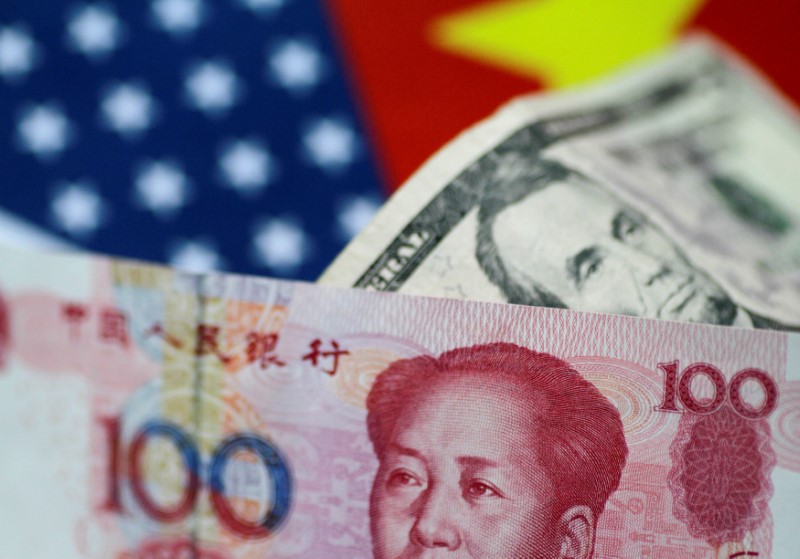Investing.com-- Most Asian currencies rose on Friday as more stimulus measures and positive economic readings from China helped boost risk appetite, while the dollar traded near six-month highs.
China announced another cut to its reserve requirements for local banks, unlocking more liquidity to support a slowing economic recovery. Industrial production and retail sales data also read higher than expected for August, indicating some resilience in the economy.
The yuan rose 0.3%, also taking support from a stronger daily midpoint fix by the People’s Bank. The central bank kept its medium-term lending rates steady on Friday, signaling more support for the yuan.
But the outlook for the Chinese currency still remained bleak, given that increased local liquidity is likely to drive renewed weakness in the yuan. Weak fixed asset investment and home prices data also showed that large portions of Asia’s largest economy- particularly the embattled property market- were still struggling.
Still, optimism over more stimulus measures in the country helped other China-exposed currencies log strong gains.
The Australian dollar rose 0.4%, while the South Korean won and the Singapore dollar firmed 0.2% and 0.1%, respectively. The won was also aided by data showing South Korea’s exports shrank slightly less than expected in August, as did the country’s trade balance.
But despite some gains on Friday, most Asian currencies were still trading close to 2023 lows as markets bet that U.S. interest rates will remain higher for longer.
The Japanese yen, which was one of the worst hit Asian currencies by rising U.S. interest rates, traded flat on Friday. Focus now turns to a Bank of Japan meeting next week, following some signals from policymakers that an end to its negative rate regime was close.
Rising oil prices pressured the Indian rupee, despite growing optimism over the South Asian economy. The rupee crossed the 83 mark in overnight trade, and was once again close to record lows.
Dollar at 6-month peak after strong data, Fed meeting awaited
The dollar index and dollar index futures fell 0.1% each in Asian trade after hitting a six-month high in overnight trade.
Signs of resilience in the U.S. economy, following stronger-than-expected inflation and retail sales data, were key drivers of a dollar rally this week.
But despite the strong inflation readings, traders largely maintained their bets that the Federal Reserve will keep interest rates on hold when it meets next week.
Still, the Fed is expected to reiterate its hawkish stance, and is likely to keep rates higher for longer, with a rate cut only expected by mid-2024.
